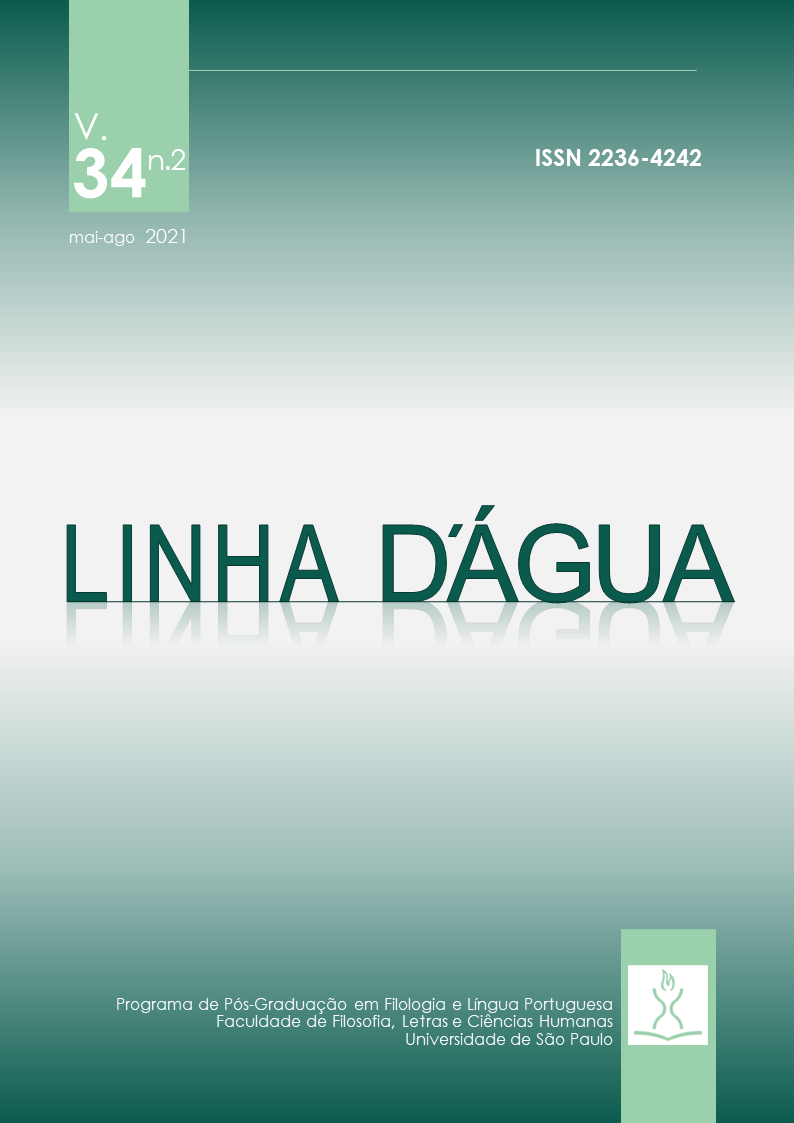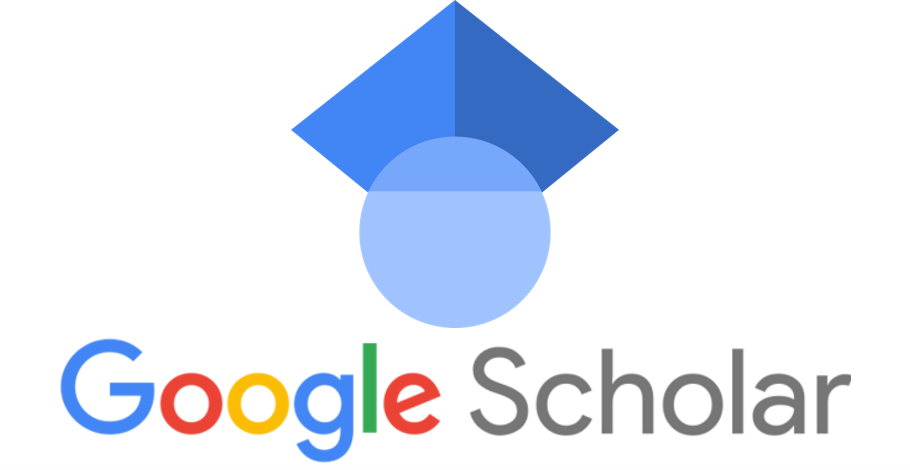Construir Humanidades digitais num contexto linguístico: bases metodológicas para o ensino de Humanidades Digitais no 1º e 2º ciclo de ensino universitário
DOI:
https://doi.org/10.11606/issn.2236-4242.v34i2p83-102Palavras-chave:
Humanidades digitais, Educação, Metodologia, Filosofia da Ciência, Linguística Quantitativa, Programas de EstudoResumo
A transformação da sociedade em direção à digitalização e automação não pode ser ignorada no sistema educacional superior. Embora o processo tenha vindo a ser naturalmente refletido pelo sistema educacional de ciências técnicas, as Humanidades continuam a enfrentar dificuldades para se manterem atualizadas com as últimas tendências da digitalização da sociedade. A área das Humanidades Digitais (HD) é muito jovem e carece de uma base metodológica sólida ou de princípios ontológicos. Este artigo tem como objetivo propor alguns fundamentos filosóficos e metodológicos para a disciplina das HD, e respectivas aplicações práticas no sistema de Ensino superior. Descrevemos dois estudos de caso sobre a criação de novos programas de programas de estudo na Universidade Palacký em Olomouc, República Tcheca.
Downloads
Referências
ALTMANN, G. (1978). Towards a theory of language. In: ALTMANN, G. (Ed.). Glottometrika 1. Bochum: Studienverlag Dr. N. Brockmeyer, 1978, p. 1-25.
AMARO, R. WordNet as a base lexicon model for the computation of verbal predicates. Proceedings of GWC 2006, Global WordNet Association Conference, 2006.
AMARO, R. Extracting semantic relations from Portuguese corpora using lexical-syntactic patterns. In: Conference LREC 2014 - 9th Language Resources and Evaluation, 2014, Reykjavik.
AMARO, R.; MENDES, S.; PALMIRA, M. Increasing Density through New Relations and PoS Encoding in WordNet.PT. International Journal of Computational Linguistics and Applications, v. 4, n. 1, p. 11-27, 2013.
BENEŠOVÁ, M.; FALTÝNEK, D.; ZÁMEČNÍK, L. Menzerath-Altmann Law in Differently Segmented Texts. In: BENEŠOVÁ, M.; MAČUTEK, J.; TUZZI, A. (Eds.) Recent Contributions in Quantitative Linguistics. Berlin: De Gruyter Mouton, 2015, p. 27–40.
BEREZOVSKY, I. N.; KIRZHNER, V. M.; KIRZHNER, A.; ROSENFELD, V. R.; TRIFONOV, E. N. Protein sequences yield a proteomic code. Molecular Biology, v. 36, n. 2, p. 239–243, 2002.
BOLSHOY, A. DNA sequence analysis linguistic tools: contrast vocabularies, compositional spectra and linguistic complexity. Applied bioinformatics, v. 2. p. 103–112, 2003.
BUSA, R. The Annals of Humanities Computing: The Index Thomisticus. Computers and the Humanities, v. 14, n. 2, p. 83-90, 1980.
CABRÉ, T. M. Terminology: Theory, methods and applications. Amsterdam: John Benjamins Publishing, 1999.
CALDARELLI, G. Scale-Free Networks: Complex Webs in Nature and Technology. Oxford University Press, 2007. Available in: https://EconPapers.repec.org/RePEc:oxp:obooks:9780199211517. Last accessed: 27 Apr. 2021.
CAMPBELL, R.; REIBLE, D.; TARABAN, R.; KIM, J. More than a Dream: The Developing Reflective Engineers through Artful Methods (DREAM). Project Paper presented at Gulf Southwest Section Conference, 2020. Avaible in: https://jee.org/36012. Last accessed: 27 Apr. 2021.
CHEN, R.; LIU, H. Thematic concentration as a discriminating feature of text types. Journal of Quantitative Linguistics, v. 25, n. 1, p. 53-76, 2018.
COLLIER, P. The Future of Capitalism. Facing the New Anxieties. London: Penguine Random House, 2018.
COSTA, R., SILVA. R. et al. Glossário Colaborativo COVID-19. Available in: https://www.lexonomy.eu/ec25mm79/ Last accessed: 27 Apr. 2021.
DERRIDA, J. Of Grammatology. London: Johns Hopkins University Press, 1976.
EUROPEAN COMMISSION. Strategic Plan 2020-2024 – Education, Youth, Sport and Culture. 2020. Available in: https://ec.europa.eu/info/publications/strategic-plans-2020-2024_en Last accessed: 27 Apr. 2021.
EUROPEAN COMMISSION. Strategic Plan 2020-2024 – Research and Innovation. 2020. Available in: https://ec.europa.eu/info/publications/strategic-plans-2020-2024_en Last accessed: 27 Apr. 2021.
EUROPEAN COMMISSION. The Digital Europe Programme. Available in: https://ec.europa.eu/digital-single-market/en/europe-investing-digital-digital-europe-programme Last accessed: 27 Apr. 2021.
FALTÝNEK, D.; MATLACH, V.; LACKOVÁ, Ľ. Bases are Not Letters: On the Analogy between the Genetic Code and Natural Language by Sequence Analysis. Biosemiotics 12, p. 289–304, 2019. Available in: https://doi.org/10.1007/s12304-019-09353-z Last accessed: 27 Apr. 2021.
FALTÝNEK, D., MATLACH, V. (2021). Forthcoming
FERRER-I-CANCHO, R., SOLÉ, R. V. The small world of human language. Proceedings of the Royal Society B. London, 268, p. 2261–2265, 2001.
FOUCAULT, M. The Archaeology of Knowledge. New York: Pantheon Books, 1972 [1969].
FOUCAULT, M. The order of things: An archaeology of the human sciences. New York: Vintage Books, 1994[1966].
GIERE, R. N. Scientific Perspectivism. Chicago: The University of Chicago Press, 2006.
GLOGAROVÁ, J. D., & KUBÁT, M. Srovnávací frekvenční analýza exilových projevů Klementa Gottwalda a Edvarda Beneše z let 1939-1945. Slovo a Slovesnost, v. 81, n. 1, p. 65-77, 2020.
GRZYBEK, P. Introductory Remarks: On the Science of Language in Light of the Language of Science. In: Grzybek, Peter (Ed.) Contributions to the Science of Text and Language. Word Length Studies and Related Issues. Dordrecht: Springer, 2006, p. 1-14.
HERDAN, G. The Advanced Theory of Language as Choice and Change. Berlin: Springer-Verlag, 1966.
HŘEBÍČEK, L. Some aspects of Power Law. Glottometrics, v. 6, p. 1-8, 2003.
JANEČKOVÁ, B. A.; TICHÁ, A.; FIEDLER, J. Třikrát o autorství. Olomouc: Palacký University Press, 2021.
JENSEN, K. E. Linguistics in the digital humanities: (computational) corpus linguistics. MedieKultur: Journal of Media and Communication Research, v. 30, n. 57, p. 115-134, 2014. Available in: https://doi.org/10.7146/mediekultur.v30i57.15968 Last accessed: 27 Apr. 2021.
KELLERT, S. H. Borrowed Knowledge: Chaos Theory and the Challenge of Learning across Disciplines. Chicago: The University of Chicago Press, 2008.
KLEIN, N. No Is Not Enough: Resisting Trump’s Shock Politics and Winning the World We Need. Toronto: Knopf Canada, 2017.
KÖHLER, R. Quantitative Syntax Analysis. Berlin: De Gruyter, 2012.
KÖHLER, R. Synergetic Linguistics. In: KÖHLER, R.; ALTMANN, G.; PIOTROWSKI, R. G. (Eds.) Quantitative Linguistics: An International Handbook. Berlin: Walter de Gruyter, 2005, p. 760–774.
KÖHLER, R. Zur linguistischen Synergetik: Struktur und Dynamik der Lexik. Bochum: Brockmeyer, 1986.
KOŘENSKÝ, J. Procesuální gramatika v kontextu současných tendencí lingvistického myšlení. Slovo a Slovesnost, v. 64, p. 1-7, 2003.
KUBÁT, M.; MATLACH, V.; ČECH, R. QUITA. Quantitative Index Text Analyzer. Lüdenscheid: RAM-Verlag, 2014.
LAUDAN, L. Dissecting the Holist Picture of Scientific Change. In: CURD, M., COVER, J. A. (Eds.) Philosophy of Science: The Central Issues. New York: W. W. Norton & Company, p. 139-169, 1998.
LEE, K.-F. AI Superpowers: China, Silicon Valley, and the New World Order. Boston, Mass: Houghton Mifflin, 2018.
LESCH, K. On the Linguistic Structure of Emotional Meaning in Czech. Ph.D. thesis, Faculty of Mathematics and Physics, Charles University in Prague, Prague, Czech Republic, 2015.
LIU, H.; LIANG, J. (Eds.). Motifs in Language and text. v. 71. Berlin: De Gruyter Mouton, 2017.
MEYER, P. Laws and Theories in Quantitative Linguistics. Glottometrics, v. 5, p. 62-80, 2002.
POPESCU, I. I.; MIANGAH, T. M.; GNATCHUK, H.; CECH, R.; BODOC, A; ALTMANN, G. On Rank-Frequency Distributions in Poetry. Glottometrics, v. 38, p. 30-54, 2017.
QUINE, W. V. O. From a Logical Point of View. New York: Harper, 1953.
ROSS, A. The industries of the future. New York: Simon & Schuster, 2016.
SALGADO, A.; COSTA, R. (2019). LeXmart: a smart tool for lexicographers. In: Electronic lexicography in the 21st century (eLex 2019): Smart lexicography, 2019, Sintra.
SALGADO, A.; COSTA, R. (2020). O projeto “Edição Digital dos Vocabulários da Academia das Ciências”: o VOLP-1940. Revista Da Associação Portuguesa De Linguística, v. 7, p. 275-294, 2020. Available in: https://doi.org/10.26334/2183-9077/rapln7ano2020a17 Last accessed: 27 Apr. 2021.
SMITH, B. C. The Promise of Artificial Intelligence: Reckoning and Judgment. Cambridge: The MIT Press, 2019.
VARMUŽOVÁ, B. Určování autorství Slezských písní. Olomouc, [cit. 2021-01-17]. Dostupné z: https://theses.cz/id/3p64qh
VEYNE, P. Foucault: His Thought, His Character. Cambridge: Polity Press, 2010.
ZÁVODNÍ, Š. Proměny verbálního projevu účastnic výchovně vzdělávacího procesu ve vztahu k biorytmům. Hradec Králové, 2020 [cit. 2021-01-17]. Dostupné z: https://theses.cz/id/divq2d/
Downloads
Publicado
Edição
Seção
Licença
Direitos autorais (c) 2021 Lukáš Zámečník, Ľudmila Lacková

Este trabalho está licenciado sob uma licença Creative Commons Attribution-NonCommercial 4.0 International License.
A aprovação dos manuscritos implica cessão imediata e sem ônus dos direitos de publicação para a Linha D'Água. Os direitos autorais dos artigos publicados pertencem à instituição a qual a revista encontra-se vinculada. Em relação à disponibilidade dos conteúdos, a Linha D'Água adota a Licença Creative Commons, CC BY-NC Atribuição não comercial. Com essa licença é permitido acessar, baixar (download), copiar, imprimir, compartilhar, reutilizar e distribuir os artigos, desde que para uso não comercial e com a citação da fonte, conferindo os devidos créditos autorais à revista.
Nesses casos, em conformidade com a política de acesso livre e universal aos conteúdos, nenhuma permissão é necessária por parte dos autores ou do Editor. Em quaisquer outras situações a reprodução total ou parcial dos artigos da Linha D'Água em outras publicações, por quaisquer meios, para quaisquer outros fins que sejam natureza comercial, está condicionada à autorização por escrito do Editor.
Reproduções parciais de artigos (resumo, abstract, resumen, partes do texto que excedam 500 palavras, tabelas, figuras e outras ilustrações) requerem permissão por escrito dos detentores dos direitos autorais.
Reprodução parcial de outras publicações
Citações com mais de 500 palavras, reprodução de uma ou mais figuras, tabelas ou outras ilustrações devem ter permissão escrita do detentor dos direitos autorais do trabalho original para a reprodução especificada na revista Linha D'Água. A permissão deve ser endereçada ao autor do manuscrito submetido. Os direitos obtidos secundariamente não serão repassados em nenhuma circunstância.











